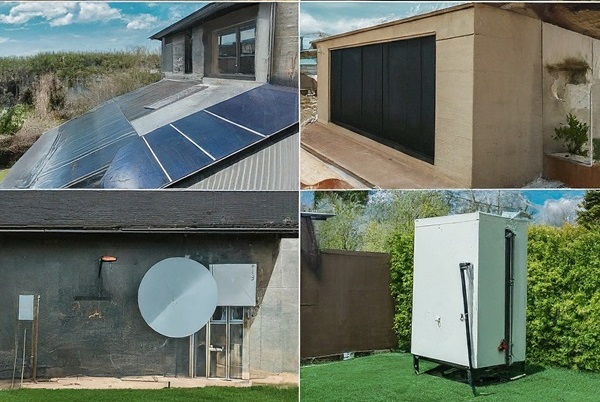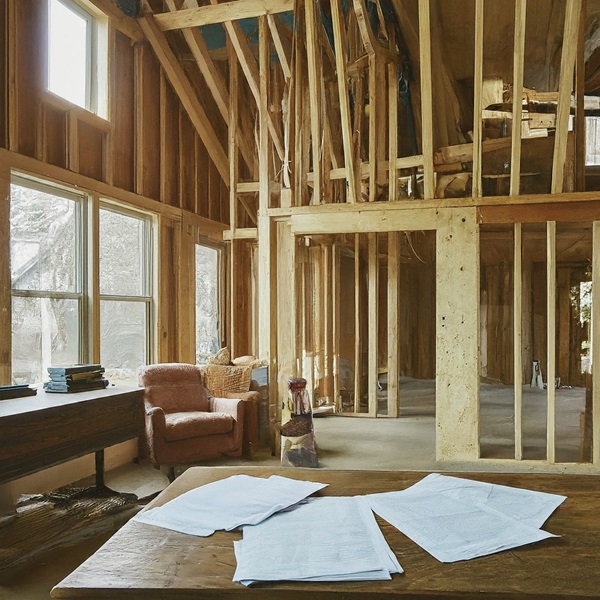Thinking about a home renovation? While the aesthetic and functional benefits are clear, you might be wondering if there are any tax advantages to consider. The truth is that most home construction and renovation projects will not yield any tax benefits. However, there are a few types of home improvements that are eligible for either tax deductions or tax credits. So, what home improvement expenses are tax deductible? Let’s dive in!
Tax Deductions vs. Tax Credits: What is the Difference?
Tax deductions and credits both reduce your tax burden, but they work in slightly different ways:
- Tax Deductions lower your taxable income and lower your tax liability. That means you pay taxes on a smaller amount. The Internal Revenue Service (IRS) allows deductions for various expenses throughout the year. You can subtract those expenses from your income before calculating the taxes you owe.
- Tax Credits directly reduce the amount of tax you owe. Essentially, it is a tax reduction applied after your taxable income is calculated.
Tax Credits for Home Improvement Upgrades.
The good news is the IRS offers tax credits for specific energy-efficient home improvements. These credits can significantly reduce the upfront cost of these upgrades:
Energy Efficient Home Improvement Credit:
Energy Efficient Home Improvement Credit: This credit covers 30% of the cost of qualified improvements like insulation, windows, and certain HVAC systems. Only the home improvements that meet Energy Star guidelines or international Energy Conservation Code qualify.
Here are some examples of home renovations eligible for tax credits:
- Exterior doors, windows, and skylights
- Insulation materials
- Central air conditioners, water heaters, furnaces, and boilers
- Heat pumps
- Biomass stoves and boilers
- Home energy audits
It is important to note that there are spending caps on the Energy Efficient Home Improvement Credits:
- $1,200 for most energy property costs, with sub-limits for specific items like doors and windows
- $2,000 for qualified heat pumps, biomass stoves, or boilers.
Residential Clean Energy Credit:

This annual credit applies to renewable energy systems and appliances for your home.
So, can I claim a refrigerator on my taxes? Well, no. It’s true, many new models of refrigerators, dishwashers, stoves, and other home appliances have greatly approved energy efficiency. However, those appliances do not qualify for the tax credit. Here are some examples of home improvement systems that qualify for the Clean Energy Credit:
- Solar panels
- Small wind energy systems
- Geothermal heat pumps
- Solar water heaters
- Fuel cells (for your main residence only)
- Battery storage systems (starting in 2023)
For the Residential Clean Energy Credit, the credit is generally 30% of the cost of the system, with no annual spending cap.
Which Home Improvements are Eligible for Tax Deductions?
Besides energy improvements, there are some other types of home renovations that may qualify for tax deductions. Note that most home improvements don’t qualify for general tax deductions. They’re considered to increase your home’s value, not maintain its existing condition. However, there are some exceptions:
Medical Modifications:
Medically necessary home modifications are tax deductible as medical expenses. Medical home improvements that qualify for tax deduction:
- Accessibility features: Ramps, widened doorways and hallways, grab bars in bathrooms, lowered countertops in kitchens.
- Modifications for specific medical needs: Installing a walk-in shower for someone with difficulty using a bathtub, modifying kitchen cabinets for someone in a wheelchair.
- Safety features: Stairlifts, elevators (in some cases), handrails along hallways and stairs.
Home Office Remodeling Tax Deductions:

Construction and remodeling expenses that are directly related to your home office and business are tax deductible.
A portion of home office remodeling can be deducted if you have a dedicated space used exclusively and regularly for business.
It is important to remember that only the portion of the remodeling costs dedicated to the business space is deductible. For example, if your home office is 20% of your home’s square footage, then 20% of the remodeling cost might be deductible. Besides, strict criteria apply to what qualifies as a home office.
You must have:
- Legitimate Business: You must have a business you operate regularly and exclusively from your home. Working remotely for an employer wouldn’t qualify.
- Dedicated Space: The space you remodel must be used exclusively and regularly for business. A spare bedroom you occasionally use for work wouldn’t qualify.
- Rental Property Repairs: Repairs to rental properties are deductible in the year they are paid for.
Remember, to claim these tax deductions, you’ll need to provide receipts and documentation to prove your expenses. So, keep close track of your home improvement expenses!
Capital Gains Tax: How Home Improvements Impact Your Home Sale.
How To Lower Your Capital Gains Tax

While most home improvements don’t offer immediate tax deductions, they can significantly impact your taxes when you sell your house.
When you sell your house for more than you paid for it, you generally have a capital gain. By increasing your cost basis through documented capital improvements, you can potentially reduce the amount of capital gains you have to pay taxes on.
For instance, a higher cost basis means a lower capital gain, and potentially less capital gains tax to pay.
Consider the following three factors:
- Cost Basis: This is the original purchase price of your home plus any closing costs you paid.
- Capital Improvements: Ugrades that add value, extend lifespan, or improve functionality (new roof, addition) are considered capital improvements.
- Increased Cost Basis: The cost of capital improvements is added to your home’s original cost basis.
Key Takeaways:
- Most home improvements aren’t directly tax deductible, but some exceptions apply.
- Energy-efficient upgrades can qualify for tax credits that offset the cost.
- Home improvements can significantly impact your capital gains tax when you sell your home.
Remember, keeping good records of receipts and invoices for home improvements is crucial. Consulting a tax professional can help you understand how these concepts apply to your specific situation and maximize your tax benefits.








